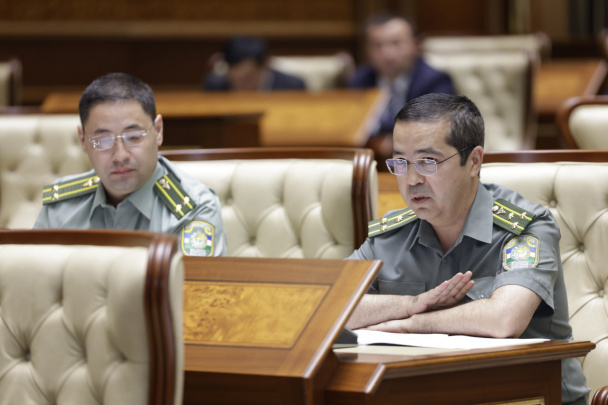Overpaid taxes can now be redirected to cover other tax obligations under new law

Photo: Ministry of Tax Committee
These changes were introduced by law, signed on June 26, which amended several aspects of tax administration. The law was previously approved by the Senate on May 28, as reported by the Ministry of Justice.
According to the amendments, the procedure for applying overpaid taxes toward future payments has been further simplified. Now, excess payments made for one type of tax can be allocated toward future obligations for other types of taxes as well.
The law also introduces legal provisions allowing electronic documents used in tax relations to be authenticated using electronic confirmation methods that express the individual’s consent and enable identification—methods that are now considered equivalent to an electronic digital signature.
In addition, for the agricultural sector, including fish farming, tax reporting for the use of water resources will now be generated automatically through the “Suv hisobi” (Water Accounting) information system and based on data provided by the relevant authorized bodies.
Under the new rules, redirection of excess tax payments to other obligations will be processed by tax authorities within three days, upon receiving a written or electronic request from the taxpayer.
The law also exempts certain incomes from taxation. Specifically:
- Funds received by Mahalla Service companies from activities related to improving local neighborhoods and providing specific socially-oriented paid services to the public will not be considered taxable income.
- Properties used for providing these services, as well as the land plots where they are located, will not be subject to land tax.
Moreover, the following income types will also be exempt from taxation:
- Income earned by individuals who participated in the cleanup of the Chernobyl nuclear disaster, as well as the income of their spouses;
- Earnings of employees of Mahalla Service companies, received as wages from their tax-liable activities.
The law also stipulates that the directorates managing the leather and footwear industrial zones in Sharof Rashidov district (Jizzakh region) and Ohangaron district (Tashkent region) will be exempt from paying property tax, land tax, and water usage tax from January 1, 2025, to January 1, 2026.
This law enters into force from the date of its official publication.
Related News

13:27 / 27.06.2025
Economist Otabek Bakirov criticizes IMF's call for higher taxes on the working class

15:26 / 26.06.2025
Uzbekistan offers tax breaks for foreign investors in certain districts of Tashkent region

15:12 / 26.06.2025
‘Wrong prescription’: Economist slams IMF call for tax increases in Uzbekistan

14:55 / 26.06.2025



